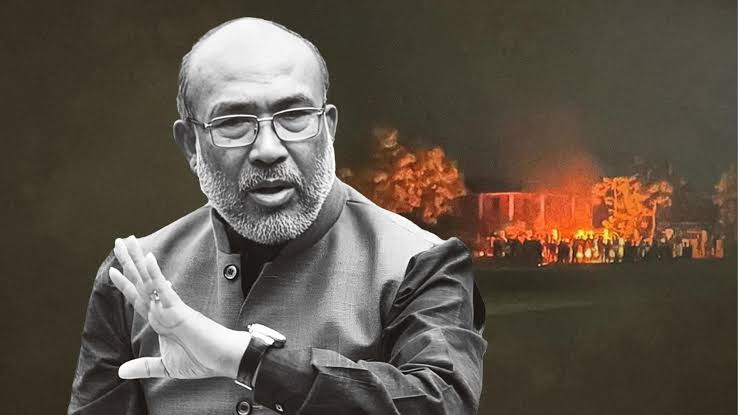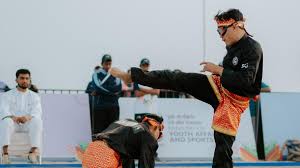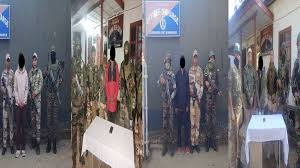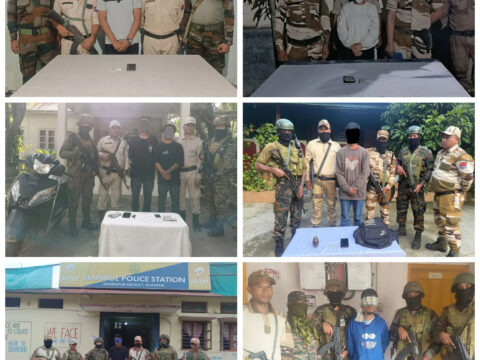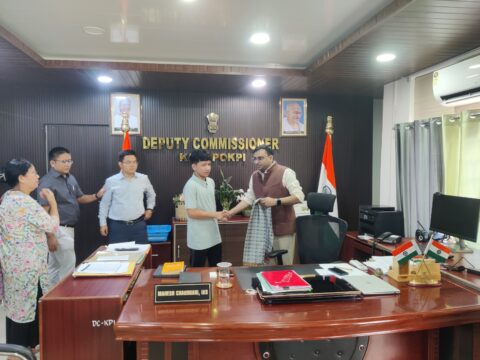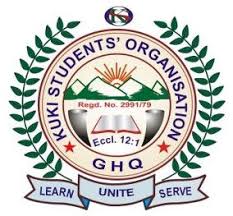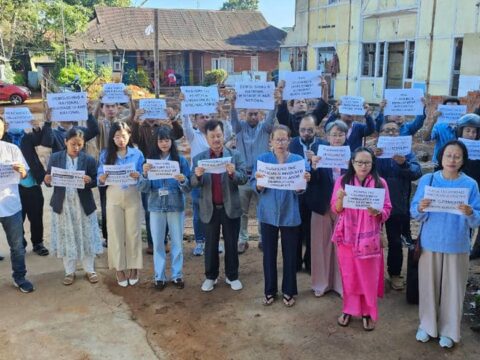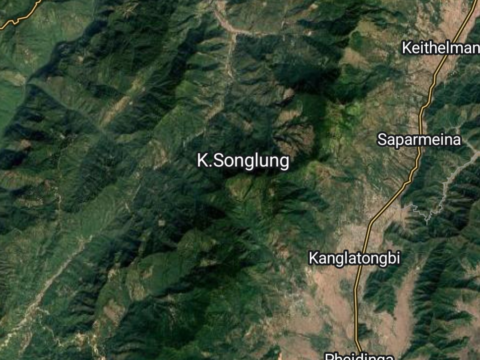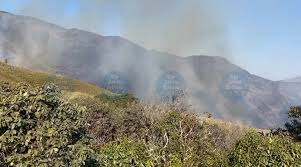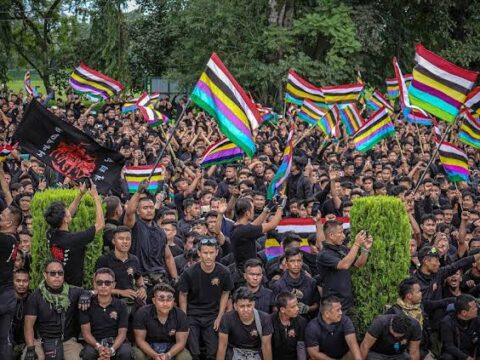Imphal, June 22, 2025
In a blistering rebuttal addressed to Manipur Governor Ajay Kumar Bhalla, the Kuki Organisation for Human Rights Trust (KOHUR) has accused former Chief Minister N. Biren Singh of spreading falsehoods, historical distortions, and communal propaganda against the Kuki-Zo people.
The rejoinder, submitted on June 21, tears apart the memorandum submitted by Biren Singh on May 27, which called for the identification and deportation of so-called illegal immigrants from Myanmar and Bangladesh. “Biren Singh’s narrative is a deliberate fabrication meant to demonize Kukis and justify the ongoing ethnic cleansing,” said H.S. Benjamin Mate, Chairman of KOHUR. “He has not only lied about history, but also attempted to criminalize a vulnerable population of distressed refugees.”
KOHUR challenged the historical basis of Biren Singh’s claims, especially his reliance on the Cheitharol Kumbaba, the Meitei royal chronicle. The rejoinder cites respected scholars like Nepram Bihari and Saroj Nalini Parratt, who have noted that the early sections of the chronicle were reconstructed in the 18th century and filled with exaggerations. “There cannot be any scientific justification,” the document argues, “for rulers allegedly reigning for 120 or 100 years when life expectancy at the time was around 35 to 40 years.”
The rejoinder denounces such myths as part of an effort to legitimize Meitei supremacy and erase the presence of the Kukis. Refuting the misuse of colonial census data, KOHUR slammed Biren Singh’s reliance on the 1881 census, pointing out that it didn’t cover the hill areas then inhabited by Kukis. They argue that a proper comparison should be drawn from the 1901 census.
According to KOHUR, the Kuki-Mizo group population grew from 47,042 in 1901 to 448,214 in 2011, marking a growth rate of 952%, which is still lower than the Meitei growth rate of 1156% between 1881 and 2011 as claimed by Singh himself. The document further notes that “ghost villages” created under MGNREGA schemes and the sociological practice of village fission among Kukis were being deliberately misrepresented as evidence of illegal immigration.
On the issue of refugees, KOHUR stated that the so-called “illegal immigrants” from Myanmar were in fact Indian citizens who had migrated to the Kabaw Valley and returned during periods of violence, including after the Burmese military’s Khadawmi Operation in 1967. “Instead of compassion, Biren chose persecution,” KOHUR alleged. “He jailed them, criminalized their existence, and deported them to a brutal regime—some to their deaths.” It also highlighted the double standard shown by Biren Singh, who gave aid to Naga refugees from Myanmar but hunted down Kuki refugees during the 2021 military coup in Myanmar.
The document also delivers a damning indictment of Biren Singh’s much-publicized “war on drugs.” KOHUR alleged that while poor Kuki villagers, many of whom were displaced by the 1990s Kuki-Naga ethnic conflict, were forced into poppy cultivation for survival, the drug trade was actually run and financed by Meitei elites. “The real narco-terrorists in the state are the Meitei armed militants who control the drug cartels,” the report says. It referenced the case of police officer Thounaojam Brinda, who had publicly accused Biren Singh of shielding powerful drug syndicates instead of dismantling them. “To the Kuki individuals, he was a menace rather than a reformer,” the document said.
In closing, the Kuki rights group accused Biren Singh of exploiting refugee fears, historical myths, and drug narratives as part of an orchestrated campaign to marginalize and annihilate the Kuki-Zo people. “This man, Biren Singh, should not be allowed to hold public office. He is a danger to civilised society. His hands are stained with the blood of innocents,” the rejoinder stated bluntly. “There’s a saying,” it concluded, “Truth has a certain ring to it. We trust Your Excellency will know which voice is telling the truth.” — Let me know if you’d like this edited into a press release, social media format, or translated to another language.
